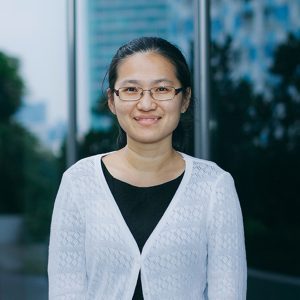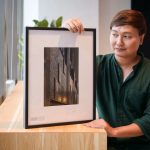
Improving Existing Developments in Singapore to be Green Mark Platinum Certified
3 September 2023
RSP Architects, Planners & Engineers (RSP) together with its Engineering arm, Squire Mech (SM), officially announces the formation of sustainability studio, RSP.SM Energy Group, with an aim to strengthen efforts in reducing Singapore’s carbon footprint and energy consumption by improving old buildings and carrying out Asset Enhancement Initiatives (AEI). The team of 6 consists of professionals from RSP and SM who are passionate about making a positive impact in their lifetime and where possible, reverse the damage that has been made to the environment.
Introducing the members of RSP.SM Energy Group:
 |  |  |  |  |  |
| Teo Yann Managing Director SM | Suen Wee Kwok Executive Director RSP | Tan Sew Guan Executive Director RSP | Khoo Teik Rong Senior Associate RSP | Ho Sing Yee Associate RSP | Lai Han Leong Senior Engineer SM |
Initiated in 2022, RSP.SM Energy Group is a specialised unit that combines the expertise of 3 disciplines; Architecture, Mechanical & Electrical (M&E), Engineering and Civil & Structural (C&S) Engineering, to focus on bringing an integrated solution to the climate crisis. The group’s main thrust is to help clients reduce their carbon footprint through innovative and practical solutions. Prior to its formation, sustainability is already a primary focus of the group. RSP designed Xilinx Asia Pacific Headquarters in Singapore’s Changi Business Park back in 2007 and this 6-storey development is the first building to achieve the Building, Construction & Authority’s (BCA) Green Mark (GM) Platinum status under the “Industrial” category. It was deemed to be GM Platinum certified even before the certification originated in 2008.
Today, a dedicated task force to champion sustainability is formed to ensure that all RSP projects embrace green technology and target Super Low Energy (SLE) status. RSP.SM Energy Group has carried out 2 case studies, one of which, Nanyang Technological University (NTU) Academic Building South, has completed. The Singapore Institute of Technology (SIT) Punggol Campus Court shall be completed by 2024.
SIT Punggol Campus Court
SIT’s Punggol Campus Court is the 5th newest University in Singapore. It is an open educational hub surrounded by forestry and waterfront views within the Punggol Digital District (PDD) in the Northeast of Singapore. The academic blocks encompass green spaces and open courtyards nestled amongst various sustainability features that can garner 40% energy savings.
Some examples include the use of Passive Displacement Ventilation (PDV) system for the multi-purpose hall and auditorium. Photovoltaic (PV) cells will be used to generate energy for the buildings campus-wide. A Distributed Control System (DCS) for air-conditioning will be installed and a micro grid to provide secondary power source will be available. Executive Director, Tan Sew Guan explains, “Sustainable building systems we have used for SIT include post-tensioned slabs for the typical floor plates, hollow core slabs at the indoor sports hall, Mass Engineered Timber (MET) at the food court, and typically precast columns and walls. 30% carbon footprint can be reduced by adopting structural steel with bondek slab in lieu of conventional reinforced concrete. A further 15% carbon footprint can be reduced by adopting timber structure.”
Set to open in 2024, the eco-campus is already certified GM Platinum before it is fully built; the multi-purpose hall and canteen has attained SLE status. In an interview with Forbes, Executive Director, Suen Wee Kwok shared, “Design that allows efficient use of electrical energy is just one component. Sustainability also means being able to have a building that also looks at food security (e.g. urban farming), energy security (e.g. solar panels) and water security (e.g. rainwater harvesting). At SIT, we have designed for these to take place on the campus roofs.”
NTU Academic Building South
NTU Academic Building South is a 6-storey building that houses the Nanyang Business school as well as activities of several other colleges and schools. The campus block stretches across 220 metres with a modular timber frame system. It houses teaching spaces on the 1st to 3rd storey, a research centre on the 4th and faculty offices on the 5th and 6th storey. The building was officially completed on 22 February 2023.
Deemed to be Asia’s largest wooden building, NTU Academic Building South is built using Mass Engineered Timber, MET. MET is a positive contribution to environmental sustainability. It sequesters carbon dioxide within the timber and locks it in, to prevent it from escaping into the atmosphere, thereby reducing carbon emission. The highly renewable material is also easier to handle than steel and concrete because of its high strength-to-weight ratio. MET components can be prefabricated off-site and assembled on-site, saving construction time and manpower. NTU Academic Building South received the BCA GM Platinum Award in 2021, achieving the Zero Energy certification for its energy-saving measures such as the use of PDV systems for majority of air-conditioned spaces, similar to SIT.
Looking at the future of the group’s efforts, Wee Kwok reveals the next step for RSP.SM Energy Group, “Currently, we are looking at various proposals, one of which involves hotels. The group is looking at potential clients to make sure that all the hotels in Singapore can be as energy efficient as possible. Other areas we are focusing on is the rejuvenation of retail malls.”
He continued, “We will continue to share with our peers within the RSP group about newer technology, educating them on some of the nuances of the carbon credit system and how we can improve all our energy conservation efforts within the office of our clients as well.”
For interview opportunities or media requests, please contact:
RSP Marketing & Communications
communications@rsp.sg
Re-imagine your future sustainable efforts with RSP
Share




